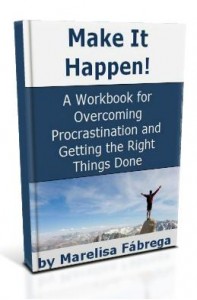 Suze Orman is an internationally acclaimed financial expert. She’s written several books on the topic of finances which have become bestsellers and have sold millions of copies; these include “The Courage to Be Rich” and “The 9 Steps to Financial Freedom”. In addition, her television program, “The Suze Orman Show”, has aired for eleven years and is one of the highest rated shows on CNBC.
Suze Orman is an internationally acclaimed financial expert. She’s written several books on the topic of finances which have become bestsellers and have sold millions of copies; these include “The Courage to Be Rich” and “The 9 Steps to Financial Freedom”. In addition, her television program, “The Suze Orman Show”, has aired for eleven years and is one of the highest rated shows on CNBC.
In 2008 and 2009, Orman was named one of Times Magazine’s 100 most influential people. In 2010, Forbes Magazine named her one of the 100 most powerful women in the world. Orman has stated that her net worth is over $10 million.
One of the things that first set Orman apart as a financial expert is her belief that most of our money problems have psychological underpinnings. She explains that it takes courage to stretch your limits, claim your power, and fulfill your potential. And that’s exactly what it takes to make money, and to be able to keep it.
In addition, she adds that it’s easy to live within the familiar limits of poverty, and within the limits imposed on you by yourself and by others. It takes courage to be true to yourself and to your desire for more. Read more about Orman’s money beliefs below.
To Accumulate Wealth You Must Believe That You Can Do It
Orman explains that she’s seen from her own life, and from the lives of her clients, that what keeps people from being rich, in most cases, is simply a lack of belief. In order to accumulate wealth, you must believe that you can do it. She explains that day after day she sees people who grew up in similar circumstances, with basically the same opportunities, and who earn more or less the same salaries. However, their net worth is very different.
In addition, there are lots of good, hardworking people who end up with little. On the other hand, there are people who have more than you would think they should. Orman adds that how you feel about money impacts how you act when it comes to money, which then determines how much money you’ll make and how much of it you’ll be able to keep.
Here’s a quote from Orman’s book, “The Courage to be Rich”:
“I have come to believe that the way each of us thinks and feels about our money is the key factor in determining how much we ultimately have. The main underlying reason that some of us don’t have money is that our thoughts and feelings about money have become internal obstacles that prevent us from having and keeping what we want.”
Money, Orman argues, is attracted to people who respect it and who are open to receiving it. It responds just as people do: nurture it and treat it well, and it will grow and flourish. Treat it carelessly or with disrespect, and it will dwindle away. If you respect money and give it the care that it needs, it will respect you back.
Which Emotions Control Your Spending Patterns?
Ask yourself which emotions are controlling your spending patterns. Is it anger, fear, or shame? Nothing good can come as a result of having negative emotions controlling your purse strings. Fear, anger, and shame are the emotions of poverty. Shame, for example, tells you that you’re not good enough, that you don’t deserve what you have, and that you’re less than others. If you feel that you don’t deserve the things that you want, then they’ll never be yours.
Fear keeps you in a state of constant worry that you won’t have enough, or that you’ll lose what you have. Even if you’re financially secure, you won’t be able to enjoy the money that you have if you’re always afraid that it’s going to run out, that you won’t be able to pay your bills, and that you’ll fall into poverty.
When it comes to anger, you may be angry at yourself for what you have or have not done with your money up to this point in your life. Maybe you’re angry at your boss for giving the promotion that should have been yours to someone else. Are you angry at your parents for being lousy when it came to managing their money? Perhaps you’re just angry at the unfairness of life and the unfairness of money. Orman indicates that anger is very likely to translate into debt and dishonesty about what you’re doing with your money.
Face Down Feelings of Shame, Fear, and Anger
Growing up in the South Side of Chicago, daughter of a chicken plucker, Orman felt lots of shame, fear, and anger. These feelings accompanied her well into adulthood. On the one hand, after college she worked as a waitress for seven years because she thought that’s all she could do. On the other hand, she was able to talk herself into applying for a job as a stockbroker at Merrill Lynch, and she got the job.
However, no matter how well she did as a stockbroker, or how much money she made, she didn’t feel that she was good enough, or smart enough. She didn’t feel entitled to money. Orman adds that these thoughts and feelings kept her from being rich. Once she was able to release herself from the bondage of her negative emotions, she was able to make room for what she really wanted from life.
You can change your financial life by facing down your feelings of shame, fear, and anger. Orman recommends that you go somewhere quiet and that you write down how you feel about your money. Think back to your childhood: Where does your shame stem from? How about your fear and anger? Then ask yourself what you’re doing now, as an adult, that is keeping those feelings of shame, fear, and anger alive. Here are some examples:
- Do you spend more than you have in an attempt to increase your self-worth and to win the approval of others?
- Do you keep your money in a low interest savings account because you’re afraid that if you invest it you’ll lose it?
- Do you miss out on business opportunities because you think that you’ll be taken advantage of?
Here’s what Orman suggests that you do: “You must release yourself from the hold these memories have over you. You can no longer afford to live in the past; make the present your point of reckoning. Today and tomorrow are all that matter. Take responsibility for your life, and for your money, from this moment on.” Forgive the people who helped etch negative feelings about money into your memory, and forgive yourself for allowing those memories to control your actions today.
Conclusion
Orman adds that her father worked harder than almost anyone she’s ever known. However, he never made it because he always carried with him thoughts of poverty, and because—deep down—he never thought that he would be able to make it. He thought he was never going to make it, he believed it, and he made it happen.
Here are some more of Orman’s lessons:
- In order to be rich, you have to not only value what you have, but also make sure that you only allow into your life those things that you value.
- In order to be rich, your self-worth has to rise along with your net worth.
- People who expect more, get it.
- The first step is to know where you stand right now; begin by taking an honest look at your finances.
- It’s when you feel powerful that more money will come your way; you’ll feel powerful when you take responsibility and control over your financial state.
- If you expect your money to take care of you, you must take care of your money.
Orman explains that when she was offered a job as a stockbroker at Merrill Lynch, she was afraid. Later, when she was offered an even better job at Prudential-Bache, she was afraid. And when she started her own financial firm, she was afraid. However, she had the courage to conquer her fear. And she had the courage to be rich.




{ 0 comments… add one now }